Since the beginning of 2023, Israel has faced escalating challenges on multiple fronts. On one hand, tens of thousands of Israelis have taken to the streets in Tel Aviv and other cities in protest against Netanyahu’s judicial reform plan, with these rallies persisting for 36 consecutive weeks. Simultaneously, a new wave of anti-Israeli operations has emerged in the West Bank, creating a complex and demanding situation in terms of internal security for the Israeli government. Internal political divisions and chaos have further exacerbated instability within the country, leading many Israeli experts to suggest that the state of the Israeli political system is in jeopardy.
Beyond its borders, Israel confronts the growing regional influence of its long-standing adversary, Iran, along with the strengthening of Iran’s allied countries and groups. Consequently, Israel finds itself in one of its most challenging periods.
Iran’s expanding geographical and ideological dominance in the region poses a significant threat to Israel. In response, Israel is determined to address this reality. Therefore, Israel’s foreign and military policy doctrine is based on confronting Iran.
Israel is currently grappling with a range of complex internal issues. Strengthening its foreign and military policies holds the potential to enhance its regional influence, which could, in turn, help address some of its internal challenges, including political instability.
Over the past year, one of Israel’s main foreign and military policy objectives has been to expand its presence in the Caucasus region and Central Asia. Notably, Tel Aviv has intensified its efforts to cultivate strong relations with Azerbaijan, a predominantly Muslim country. These efforts have grown significantly over the past year.
In 2012, The Jerusalem Post quoted a Mossad agent who claimed that Azerbaijan served as a hub for intelligence operations against Iran. The agent stated, “This is ground zero for intelligence work. Our presence here is quiet but substantial, and it has increased over the past year, bringing us closer to Iran.”
Recently, the Israel Technion Center, in partnership with the Ministry of Digital Development and Transport of the Republic of Azerbaijan, established a cybersecurity center in Baku, the capital of Azerbaijan. This center has been established to address the cyber challenges facing the country. The training staff at this center comprises security and cyber experts from Israeli security institutions. These professionals provide training to participants on cybersecurity knowledge, skills, emerging trends, and best practices in the field.
According to Israel’s Ministry of Foreign Affairs, Baku and Tel Aviv are strengthening their diplomatic and security alliance while deepening economic and tourism ties. Israel views Azerbaijan as a crucial access point to Eurasia. On the other hand, Azerbaijan’s strategic location, with a long border shared with Iran, makes it a key partner for Israel. Israel is the primary military supporter of Azerbaijan, while Azerbaijan serves as Israel’s main energy supplier.
Israel aims to exert pressure on Iran through its relationship with Azerbaijan, and Tel Aviv will try its best in this direction. It has already increased high-level visits to the country to solidify its presence in the Caucasus.
Israeli Foreign Minister Eli Cohen emphasized the common concern regarding Iran’s threat in a joint press conference with Azerbaijani Foreign Minister Jeyhun Bayramov on March 29, 2023: ‘Iran threatens our region. We must act together against Iran.’

Israel’s Foreign Minister Eli Cohen joins Turkmen Foreign Minister Rasit Meredow in a ribbon-cutting ceremony to open Israel’s new embassy in Turkmenistan April 20,2023. Photo Credit: Shlomi Amsellam.
Additionally, Israel has been actively expanding its influence in Central Asia, particularly in Turkmenistan, as part of its foreign policy in 2023. This strategy aims to counterbalance Iran’s influence in the region and create a threat on Iran’s northern borders. Israel opened its first embassy in Turkmenistan in April 2023, which, according to the Israeli Foreign Minister, is strategically positioned closest to Iran among all Israeli embassies. By doing so, Israel seeks to create new areas of tension with Iran outside the Middle East.
The ongoing conflict in Ukraine presents another significant political and military challenge for Israel, which reached its peak in 2023. On one hand, Israel seeks to maintain good relations with the Russian Federation, given Russia’s military presence on its northern borders, particularly in Syria. On the other hand, Israel is a strategic ally of the United States and has aligned itself with the Western bloc in the Ukraine conflict, opposing Russia.
This conflict of interests with Russia presents one of the most critical challenges for Israel concerning the Ukraine war. In early 2023, Israeli Prime Minister Benjamin Netanyahu indicated that he was considering sending military aid to Kiev and expressed a willingness to mediate in the conflict. In response, Russia issued warnings against Western countries and their allies sending weapons to Ukraine, citing it as a cause of escalating tensions. Israel has also faced threats from Russia, and any misstep by Israel could lead Moscow to reconsider its political and diplomatic relations with Tel Aviv.
Despite Israel providing advisory and military training to Ukraine, including special units from the Israeli Army’s General Staff training Ukrainians to combat the Russian army, Israel has refrained from delivering weapons and significant military equipment to Ukraine on a large scale and in a public manner. Even in the face of requests from the United States, Israeli authorities have not granted permission for Germany to sell Israeli anti-armor missiles, known as “Spike,” to Ukraine.
Israel also has links with Russia regarding the military supplies. Reports from Israeli television network Channel 12 suggest that Israel and Russia have reached an agreement regarding Moscow’s decision to withhold certain weapons deliveries to Tehran. According to these reports, Tehran has made weapons demands from Russia in exchange for the delivery of its drones, and Israel’s request is for Russia to disregard those demands. Instead, Israel aims to maintain its current policy of not supplying offensive weapons to Ukraine.
While understandings between Russia and Israel could be mutually beneficial, their stability remains uncertain, especially considering the possibility that Russia’s need for weapons from Tehran may increase over time, particularly as the war in Ukraine continues. In such a scenario, the equation could shift in favor of Iran.
Therefore, Israel is working to strike a delicate balance in its foreign and military policy concerning the Ukraine issue, leveraging all available tools to navigate its interests effectively between the United States and Russia.
Another crucial aspect of Israel’s foreign policy is the normalization of relations with Arab countries in the Persian Gulf, particularly Saudi Arabia. Following the peace agreement between Iran and Saudi Arabia, the Israeli government finds itself in a weakened position. Saudi Arabia and Iran, historical rivals in the Middle East, have been engaged in direct and indirect conflict across the region. The peace agreement between them is expected to improve their relations, potentially allowing Iran to divert more of its attention and resources against Israel. In light of this, Israel is actively pursuing a similar peace agreement with Saudi Arabia.
Prior to the Iran-Saudi agreement, there were speculations about the possibility of normalizing relations between Riyadh and Tel Aviv. Some analysts even suggested that, given Israel’s growing ties with certain Arab nations in the region, Riyadh might establish a relationship with Tel Aviv in the near future. However, this matter is far from straightforward. Saudi Arabia has outlined several demanding conditions for normalizing relations with Israel.
According to reliable sources, one of Saudi Arabia’s key conditions for normalization is progress in resolving the West Bank issue and advancing the Palestinian cause. While the Saudis emphasize this demand, it may not be their highest priority. They are also seeking the right to pursue a peaceful civilian nuclear program, as well as strengthening and expanding their defense and trade relations with the United States, among other requirements.
The peace agreement and the normalization of relations with Saudi Arabia represent significant goals for Benjamin Netanyahu’s government in 2023. Nevertheless, it is unlikely that this complex issue will be fully resolved in the coming months or even until the end of 2023 before any substantial progress is made.
In the military realm, 2023 sees the Israeli military engaging in several significant joint military exercises with the United States. In January, the IDF and the U.S. military conducted a major drill in Israel, known as Juniper Oak 2023. This exercise marked the largest-ever joint training between the Israeli and U.S. armed forces, involving 6,400 U.S. troops alongside over 1,500 Israeli troops, as well as more than 140 aircraft, 12 naval vessels, and various artillery systems. Further exercises planned for 2023 aim to prepare Israel for potential multi-front missile attacks, involving the use of Patriot air defense systems and other interceptor systems in the training scenarios.
In essence, these drills simulate potential joint Israeli-US attack on Iran’s nuclear facilities. These military exercises serve to convey a clear message to Iran while ensuring both countries maintain their military readiness.
One of Israel’s paramount objectives is to increase the sale and export of weapons, a strategy integral to restoring its global political and military standing. On August 17th, the U.S. approved a historic $3.5 billion sale of Israel’s Arrow-3 missile defense system to Germany. This represents Israel’s largest-ever defense sale. Notably, this deal required approval from Washington due to the U.S.’s involvement as a partner in the Arrow project, and because the Israeli weapon system was developed with U.S. financial support.
Israel’s cooperation with the U.S. in the realm of weapons production is a key component of its efforts to enhance military relations with other countries. The success of this defense sale not only strengthens Israel’s position but also opens doors for potential sales of other weapons systems to additional countries. Following this deal, several other nations have expressed interest in acquiring the Arrow system.
Broadly, Israel is actively pursuing strategies across various political, military, economic, cultural, and social dimensions to cultivate new alliances across the globe. By expanding its network of relationships, Israel aims to attain several objectives, including bolstering its international political legitimacy and prestige, diluting the unity among Arab and Islamic nations opposed to Israel, reducing the significance of the Palestinian issue, bolstering its strategic security against Iran and its allies, and harnessing economic opportunities.



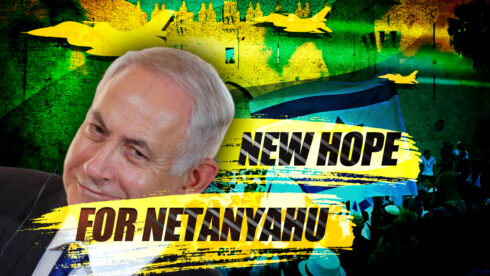
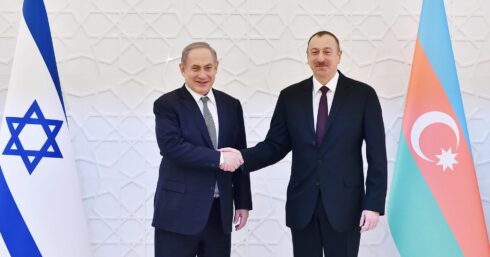

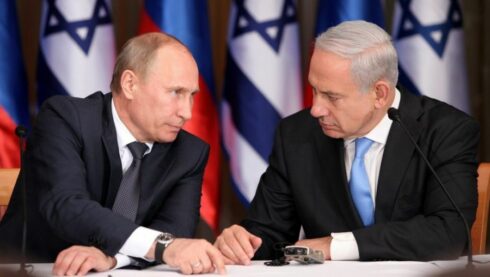
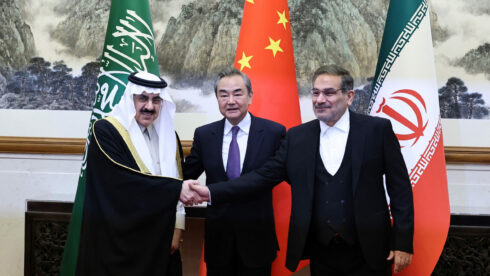
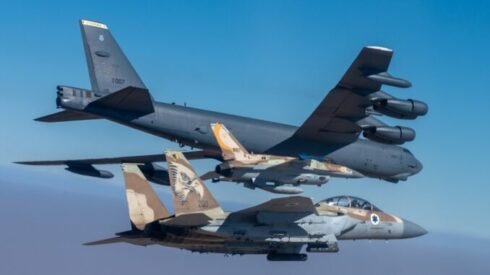
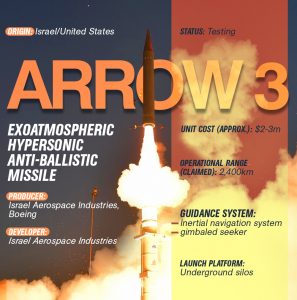



i think israel is doomed.
also, an ideology never dominated. domination is always anti-idea(logy). iran is more dominant, yes, ideologies are irrelevant.
the destruction of israel seems largely planned… by israel
a foolish snake charmer with anti-venom and some very large anti-snake weapons will be required to deal with israel
israel exists as a transfer point of western tech to russia and china. while ukraine may have popular support on the ground in israel, mossad is 100% perestroika deception style soviet organisation, and russia the home of chabad etc.
the dirty jew infiltrated russian centuries ago. the puppet master of the world are the sam sadducee and pharisees that planned to execute christ in the year 65bc
anyone who thinks someone other than the evil satanic jew controls any aspect of the world is delusional